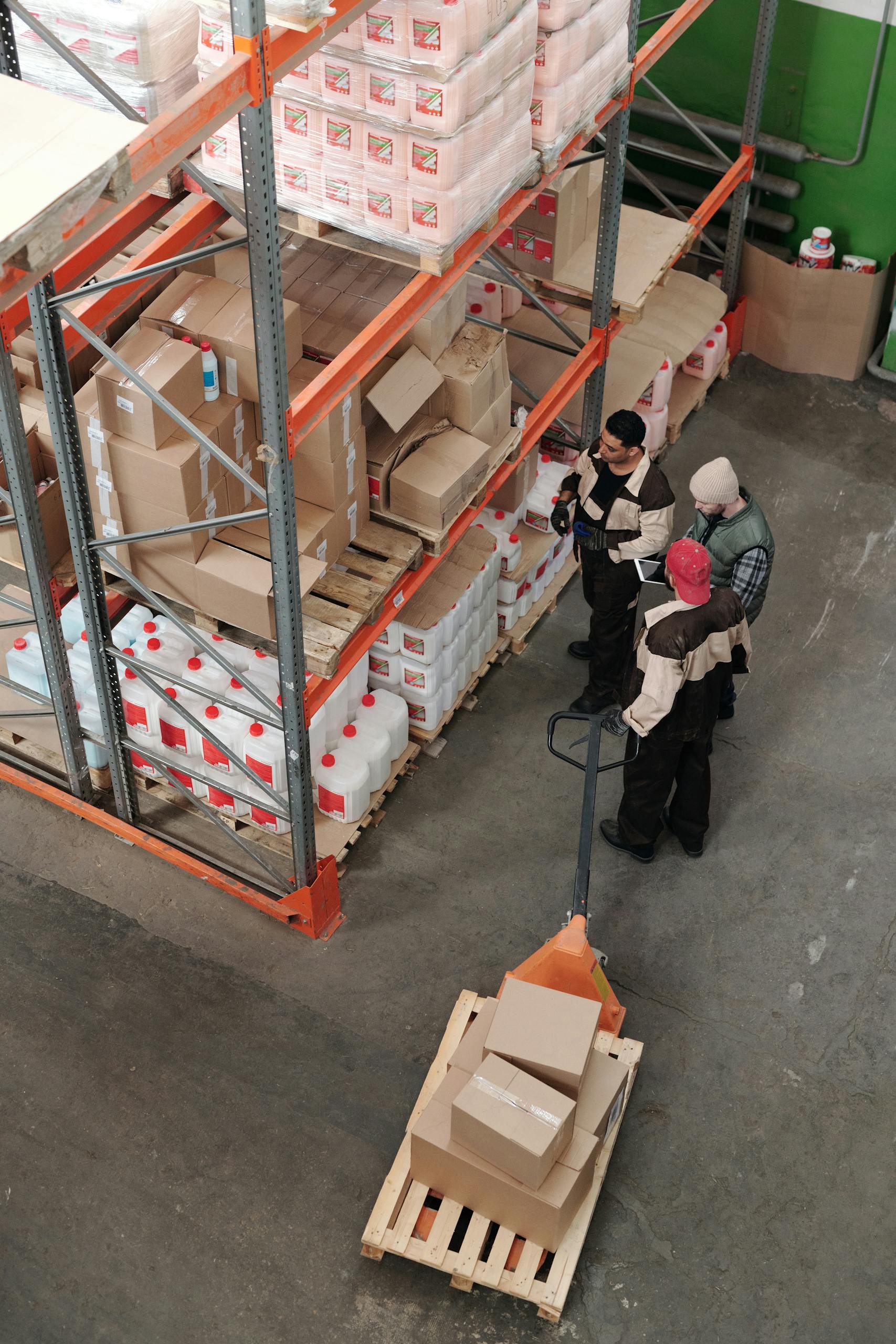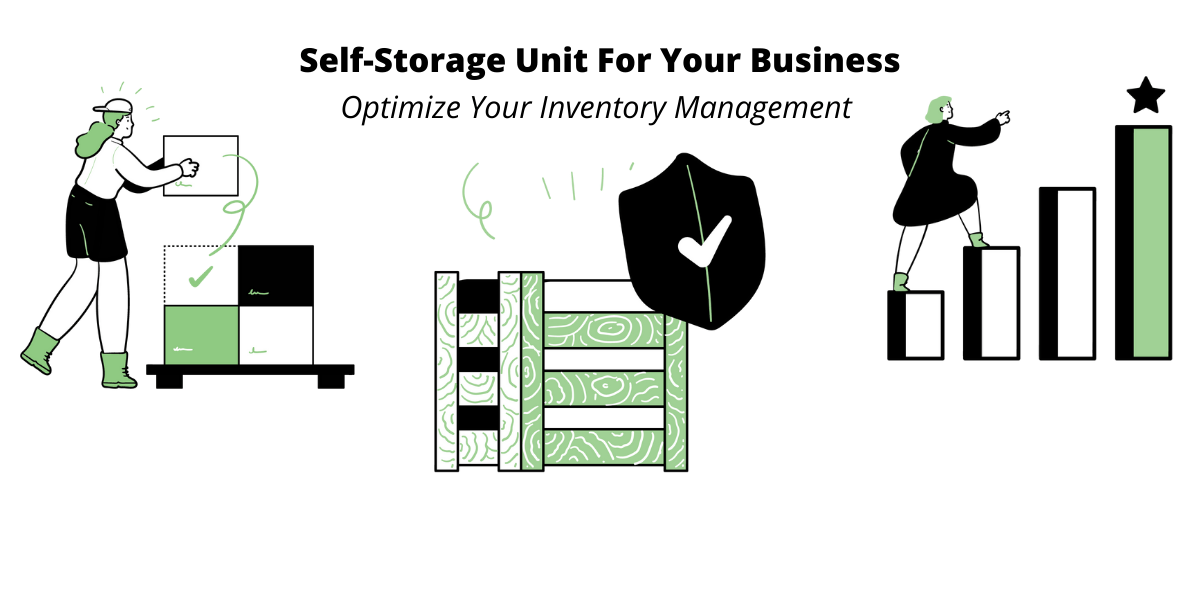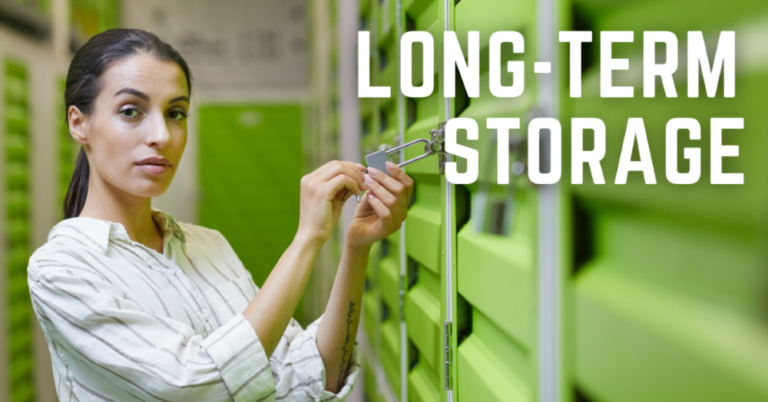10 Pros of Using a Self-Storage for Inventory Storage System
Self-storage for Inventory Storage
A self-storage is an ideal option for inventory storage for businesses in the early stages of development.
It is cheap or free, as you can store your goods in your home, a dedicated self-storage unit, or even a garage.
It is easy to access and offers manageable storage for new businesses.
The benefits of using self-storage for storing inventory
For businesses looking for a cost-effective and easy solution for inventory storage, self-storage is the perfect option.
Self-storage is cheaper and simpler than using a commercial warehouse space, and it’s a great way to keep your inventory organized and easily accessible.
Not only is it a great way to store goods, but it can also be an efficient way to manage inventory and maximize space.
Self-storage provides small businesses with great flexibility, allowing them to move inventory in and out of storage units easily and to scale up as their business grows.
Furthermore, self-storage units often come with climate control, which can help protect your inventory from damage.
Self-storage is ideal for businesses looking to store inventory efficiently and cost-effectively.
1. Easier access to goods for business operations
Self-storage is a great option for businesses that are just starting or don’t need to store many products.
Self-storage provides an easy way to access and store goods, benefiting businesses.
By storing items in a home, garage, or self-storage unit, businesses can easily access their goods when needed, making operations quicker and more efficient.
Furthermore, self-storage is often cheaper than other storage solutions, making it an ideal choice for businesses with a limited budget.
With a few simple steps, businesses can set up their self-storage and be ready to start their operations.

2. Reduced stock-keeping costs
Self-storage can be an excellent way to reduce stock-keeping costs for businesses with few customers.
Storing inventory in a self-storage unit is much cheaper than renting commercial storage units.
It also eliminates purchasing a separate storage space, such as a garage or closet.
Not only is self-storage much more affordable, but it also provides easy access to the stored inventory.
Furthermore, many self-storage units are climate-controlled, preventing damage due to weather or humidity.
Finally, self-storage allows businesses to manage inventory without giving out their house keys.
All this makes self-storage an excellent option for businesses looking to reduce their stock-keeping costs.
3. Increased efficiency and productivity
Self-storage can increase efficiency and productivity for businesses with limited office space and overstocked inventory.
Self-storage units are often more cost-effective than commercial warehouses and provide amenities such as climate control, allowing businesses to store their inventory confidently.
Businesses can authorize other people to retrieve items from storage without giving them a house key, and they can easily move to a larger unit if needed.
Self-storage is also the cheapest and easiest choice for new businesses since it can be as easy as storing goods in a home, dedicated storage unit, or garage.
While self-storage can be inefficient and frustrating, it can be the perfect solution for businesses with few customers.
By utilizing self-storage, businesses can get the space back at their commercial office or retail location and increase their efficiency and productivity.
4. Enhanced inventory management system
Self-storage is a great way to enhance your ecommerce inventory management system.
It allows businesses to store their inventory in a secure, safe, and organized environment without a large upfront investment.
It also provides the flexibility to scale up and down depending on the needs of the business.
Self-storage solutions allow businesses to track inventory more efficiently, easily clear out dead stock, and better forecast demand.
It also provides the ability to analyze inventory costs to revenue, identify which items are selling out or sitting on shelves, and set reorder points.
By leveraging the right inventory management system, self-storage can help businesses confidently manage their inventory.
![]A Woman Checking a Van Delivery Contents](https://blog.stowspot.com/wp-content/uploads/2024/06/a-woman-checking-a-van-delivery-contents-6169678-683x1024.jpg)
5. Increased capacity to handle increased or shifting inventory levels
Self-storage can be an ideal solution to increase the capacity to handle increased or shifting inventory levels.
Moving excess inventory out of the office and into a self-storage unit allows you to quickly free up space and save money on commercial warehouse space.
Climate-controlled self-storage units also protect your items from extreme temperatures, humidity, and other environmental factors that could damage your inventory.
Furthermore, you can also authorize other people to access your inventory, and should you need more space, you can easily upgrade to a larger unit.
With self-storage, you can ensure that your orders are timely, connected to your inventory and that you don’t run out of stock, all of which can help your business remain competitive.
6. Ability to manage stock spoilage concerns
Self-storage allows for managing stock spoilage concerns by providing a secure and climate-controlled environment that helps protect against spoilage and damage.
Self-storage facilities also offer a variety of amenities, such as access to 24-hour security systems, controlled access, and on-site management for added protection.
Additionally, businesses can use inventory management software or spreadsheets to track inventory levels and trends, allowing them to manage stock spoilage concerns better.
By leveraging the right inventory management system and counting inventory frequently, businesses can stay on top of their stock and ensure it isn’t spoiled.
7. Increased security and safety for stock
Self-storage units offer increased security and safety for stock compared to keeping inventory in a home or office.
Security measures such as video surveillance cameras, electronic gate access with keypad entry, perimeter fencing, and controlled-access buildings with indoor storage units help protect stored items.
Additionally, some facilities may have advanced security features such as facility managers who live on-site, individually-alarmed storage units, and security access to your floor only (for multi-level facilities).
With self-storage, business owners can also authorize other people to retrieve items without giving them a home key.
Furthermore, many self-storage units are climate-controlled, adding extra inventory protection.
Self-storage units are also significantly less expensive than commercial warehouse space, making them a cost-effective solution for businesses.

8. Improved availability of warehouse space
Self-storage can help improve the availability of warehouse space as it is cost-effective and can easily provide extra space to store inventory.
Self-storage units are often climate-controlled, which helps to protect the products from damage and loss.
This also allows business owners to access the inventory when needed easily.
Additionally, the units can be authorized for other people to retrieve items from storage, and businesses can move to a larger unit as their business grows.
Self-storage is ideal for small and lifestyle businesses not looking to expand their operations.
9. Increased flexibility to meet business needs
Self-storage can increase flexibility to meet business needs by providing space to store goods that are easily accessible and affordable.
Self-storage is especially helpful for new businesses, as it provides a cheap, easy solution to store goods with minimal risk of damage and loss.
Additionally, self-storage is a great solution for businesses that need to manage inventory efficiently and scale as their business grows.
By using a self-storage option, businesses can quickly access their goods and have the flexibility to meet their changing needs.
10. Improved logistics and shipping processes
Self-storage can be a great way to improve logistics and shipping processes for your business.
You can easily access and organize your inventory using self-storage for efficient shipping.
Additionally, self-storage is cost-effective and can be included in your store or living costs, making it a great option for newer businesses.
Moreover, self-storage allows you to manage inventory and shipping without investing in more formalized storage systems, saving time and money.

How to choose the best self-storage for your needs?
Choosing the right self-storage option for your needs can be overwhelming with all the choices available.
Self-storage can be a great option if you are looking for a short- or long-term solution for getting organized during a home or office move or need to store your goods efficiently and cost-effectively.
Step 1: Determine your needs
Choosing the right self-storage option can be challenging, especially when starting.
Determining your needs before deciding is important, as this will help you choose a more suitable and cost-effective unit.
Self-storage can be a great option for businesses that want easy access and a more affordable solution when starting.
However, it’s not always the most efficient or practical choice for businesses needing more space or storing their inventory more securely.
By taking the time to consider your needs, you can find the best storage solution for your business that fits your budget and will help you scale as you grow.
When choosing a self-storage facility for inventory purposes, the following factors should be considered:
- Security – Ensure the facility is well-secured, with cameras, lighting, and alarms.
- Location – Choose a facility close to your business to ensure easy and quick access to inventory when needed.
- Price – Compare prices between different facilities to ensure you get the best value for money.
- Space – Ensure the facility offers enough space to store all your inventory.
- Amenities – Check for additional amenities such as climate control, 24/7 access, and packing/moving supplies.
- Customer service – Ensure the staff are knowledgeable and friendly and can provide efficient and helpful assistance.
Step 2: Research different self-storage options
Researching self-storage options when starting or growing a business is important because it can help you save money and stay organized.
Self-storage is a great option for businesses that don’t have the funds to pay for e-commerce warehousing or don’t have enough products to store.
However, self-storage can become inefficient and frustrating over time, leading to storage miscalculations and risk of damage and loss.
The different types of self-storage units include:
- Climate-controlled units
- Drive-up units
- Mobile storage units
- Car, RV, and boat storage
- Portable storage
- Small to large units
- Lockers
Step 3: Decide on the right self-storage for you
It is important to decide on the right type of self-storage to ensure that you have the most efficient and cost-effective storage solution for your business.
A self-storage is often a great option for newer businesses with a narrow product range and few customers.
However, it can become inefficient and frustrating when your business starts to grow.
Additionally, there is a risk of damage and loss when using self-storage, so it is important to consider your options before deciding what is best for your business.
Professional 3PL providers can be invaluable when you need more formalized storage solutions that can scale as you grow.
Step 4: Take into account cost, style, location and other factors
When planning to store your commercial inventory, it is important to consider cost, style, location, and other factors.
Everything in one place makes it easier to access inventory and track it accurately.
You can keep stock in bins or on shelves and racks, but renting storage units at different locations can also help you save money.
Moreover, optimizing your warehouse’s design is also key to a smoothly functioning facility.
Therefore, it is important to consider cost, style, location, and other factors to ensure that your warehouse is efficient and comfortable for all workers.
Step 5: Check if there are any existing agreements with the self-storage provider
If you plan to use a self-storage unit to store business inventory, there are several key features you should look for in the rental agreement.
- Ensure the facility is climate controlled so your inventory is not subject to extreme temperatures.
- You should also check to see if the facility provides access control, so you can authorize other people to retrieve items from storage without giving them your house key.
- Inquire about the availability of inventory management software to help you keep track of your business inventory and do inventory and warehouse audits.
With the right rental agreement, self-storage can effectively and cost-effectively manage your business inventory.
Step 6: Read reviews of previous customers to evaluate the quality of service received
When choosing a storage facility, it is important to consider previous customer reviews.
This helps to ensure that the facility you choose is reliable and trustworthy.
Step 7: Look into storage solutions available from the self-storage provider
It is important to look into storage solutions from a self-storage provider to ensure you have the right size unit to store your supplies or inventory and access convenient amenities.
You can find great commercial storage features that suit your needs, such as drive-up units for quick and easy access and climate-controlled options.
Additionally, renting storage units at various storage facilities can save you money if your business has multiple stores across the city or provides delivery services.
The right storage solution can help you keep items organized, save time and money, and provide peace of mind.
These storage solutions include the following:
- central storage
- block-stacking
- shelf storage
- rack storage
- point-of-use storage
- drive-up units
- climate-controlled options
Central storage is great for large amounts of inventory, while block stacking and shelf storage are great for smaller items.
Rack storage can help conserve space, while point-of-use storage can keep you organized.
Drive-up units and climate-controlled options offer convenience and protection from extreme temperatures.
Step 8: Do research into different inventory management applications used by the self-storage provider
Inventory management applications are software solutions designed to help businesses keep track of their stocks and optimize their operations.
These applications provide features such as inventory and warehouse audits, inventory control, and stock information tracking.
These features can help businesses reduce the chances of errors, become more efficient, and make the transition to automation easier.
By using a warehouse inventory management system, businesses can better meet customer demand, avoid stockouts, and grow their businesses.
Step 9: Get in touch with current or past customer service representatives for feedback
Getting in touch with current or past customer service representatives for feedback is important to ensure that your warehouse operations meet customer needs and expectations.
By communicating with customer service representatives, you can discover what processes can be improved to make the customer experience more efficient and satisfying.
Additionally, customer service reps can provide insight into the current customer demand and expectations, which can help you identify areas of improvement in warehouse operations.
Furthermore, customer feedback can help you understand if your warehouse inventory system software is effective and if any new equipment or processes are effective.
With customer feedback, you can better understand how to create a warehouse that meets customer needs and ensures fast and accurate fulfilment.
- Decluttering Your Home: Tips and Tricks for Every Room - May 15, 2022
- 10 Pros of Using a Self-Storage for Inventory Storage System - April 17, 2022
- Storage Solutions: 11 [Best] Bike Storage Ideas - March 12, 2022







